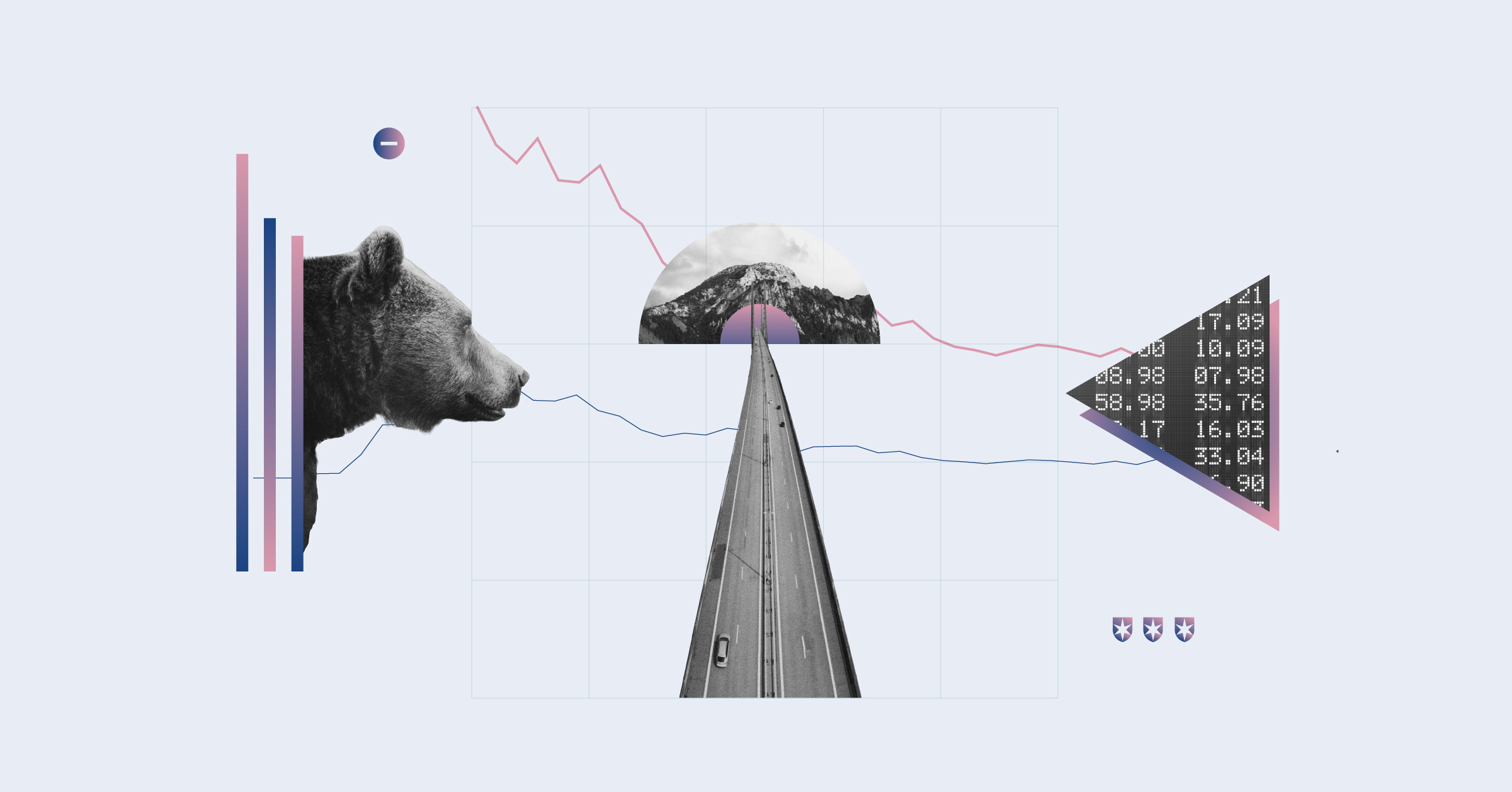
Tariffs unveiled against dozens of countries by President Donald Trump on Wednesday sent global stock markets reeling, as the worse-than-expected levies are seen damaging US and global economic growth even as they push inflation higher.
Markets were taken by surprise by the scope of Wednesday’s announcement, according to Michael Arone, chief investment strategist at State Street Global Advisors. “Trump 2.0 is all gas and no brakes,” he says. “This is a far bigger magnitude, a far bigger scale, more aggressive. And investors today are selling first, and they’ll ask questions later.”
Stock markets delivered a harsh verdict on Trump’s announcement, which included a 20% tariff on EU goods and more aggressive tariffs on Asian countries. Stocks fell sharply, with the Morningstar US Market Index dropping more than 4%. Should those losses be sustained, this would make for the market’s worst day since June 11, 2020, when it tumbled 5.97%. The S&P 500 Index lost more than 4% on Thursday morning, while the tech-heavy Nasdaq lost north of 5%.
In the US market, the damage was spread across every sector of the Morningstar Style Box. Small-cap value stocks posted the most dramatic losses of well over 6%, while large value held in the best with a decline just over 2%.
Will the US Fall Into Recession?
Across Wall Street economists pronounced the tariff outcome as worse than expected. At the same time, rather that removing uncertainty, as some pundits had predicted, the sweeping tariff regime adds an entirely new level of short- and long-term unknowns to the global economic outlook.
In the immediate future, however, the impact is seen as broadly negative.
“Recession risk over the next year has climbed to at least one third,” says Preston Caldwell, Morningstar’s senior US economist.
Caldwell emphasizes that the scope of the tariff increases makes it difficult to assess just how deep the damage will be. “This kind of regime shift is so unprecedented the historical data and models derived therefrom are only a best guess,” Caldwell says. “Altogether, the announced hikes today - including autos and other previously announced ones - will take the average US tariff rate somewhere north of 20%, the highest in over a century.”
“The bigger factor is the uncertainty weighing on spending over a 1-year time horizon. Perhaps longer. Are firms really going to invest in US manufacturing with the possibility that midterms or 2028 election could bring a reversal in tariffs? If Congress had enacted these tariffs it would give it a bit more staying power and credibility. But this is really a worst of every world scenario.”
European stocks were also lower on Thursday, with luxury and banking stocks (especially those exposed to Asian markets) falling the most.
In currency and commodity markets, the US dollar fell against a basket of currencies, while gold pushed to record highs just below $3,200 on Wednesday evening.
Government bond markets also reacted to the overnight news, with prices rising and yields falling as investors sought safe havens and downgraded assumptions about future economic growth.
Will the United States Fall Into Recession?
Across Wall Street, economists deemed the tariff outcome worse than expected. At the same time, rather than removing uncertainty as some pundits predicted, the sweeping tariff regime adds entirely new short- and long-term unknowns to the global economic outlook.
In the immediate future, the impact is seen as broadly negative. “Recession risk over the next year has climbed to at least one-third,” says Morningstar senior US economist Preston Caldwell. “We’ll be reducing our GDP growth forecast for 2025 and 2026 by around 0.5 percentage point each.”
He emphasizes that the scope of the tariff increases makes it difficult to assess how deep the damage will be: “This kind of regime shift is so unprecedented the historical data and models derived therefrom are only a best guess.”
Caldwell continues: “Altogether, the announced hikes—including autos and other previously announced ones—will take the average US tariff rate somewhere north of 20%, the highest in over a century. The bigger factor is the uncertainty weighing on spending over a 1-year time horizon. Perhaps longer. Are firms really going to invest in US manufacturing with the possibility that midterms or 2028 election could bring a reversal in tariffs? If Congress had enacted these tariffs it would give it a bit more staying power and credibility. But this is really a worst-of-every-world scenario.”
Senior BMO economist Sal Guatieri wrote, “Investors are giving the reciprocal duties a big thumbs-down.”
The tariff news hit European stocks as well. The STOXX Europe 600 Index was down around 2.4%. Financial services stocks were among the hardest hit, as well as companies exposed to emerging markets like luxury and apparel names. This comes amid much harsher tariffs for Asian countries like Vietnam, Thailand, and Pakistan, which are part of the global supply chain for luxury stocks.
In the bond market, US Treasury yields fell sharply. Investors turn to US government bonds as a safe haven and because of expectations of a slowdown in economic growth. The yield on the key 10-year US Treasury note fell to 4.02% on Thursday morning (its lowest level since October) from 4.20% before Trump unveiled his plans. Bond yields fell across Europe as well.
Dominic Pappalardo, chief multi-asset strategist at Morningstar Investment Management, says the impact of tariffs on the economy could push the Federal Reserve toward looser monetary policy. “The announcement … may be enough to allow the Fed to shift their focus more toward economic weakness than inflation,” he says. “If that’s the case, the Fed may decide to resume interest-rate cuts sooner than previously expected.” However, even that isn’t a clean call, as tariffs could contribute to renewed inflation pressures. “The Fed has been trapped between supporting economic activity and fighting inflation and unfortunately this news puts additional pressure on both,” Pappalardo says.
The author or authors do not own shares in any securities mentioned in this article. Find out about Morningstar's editorial policies.















